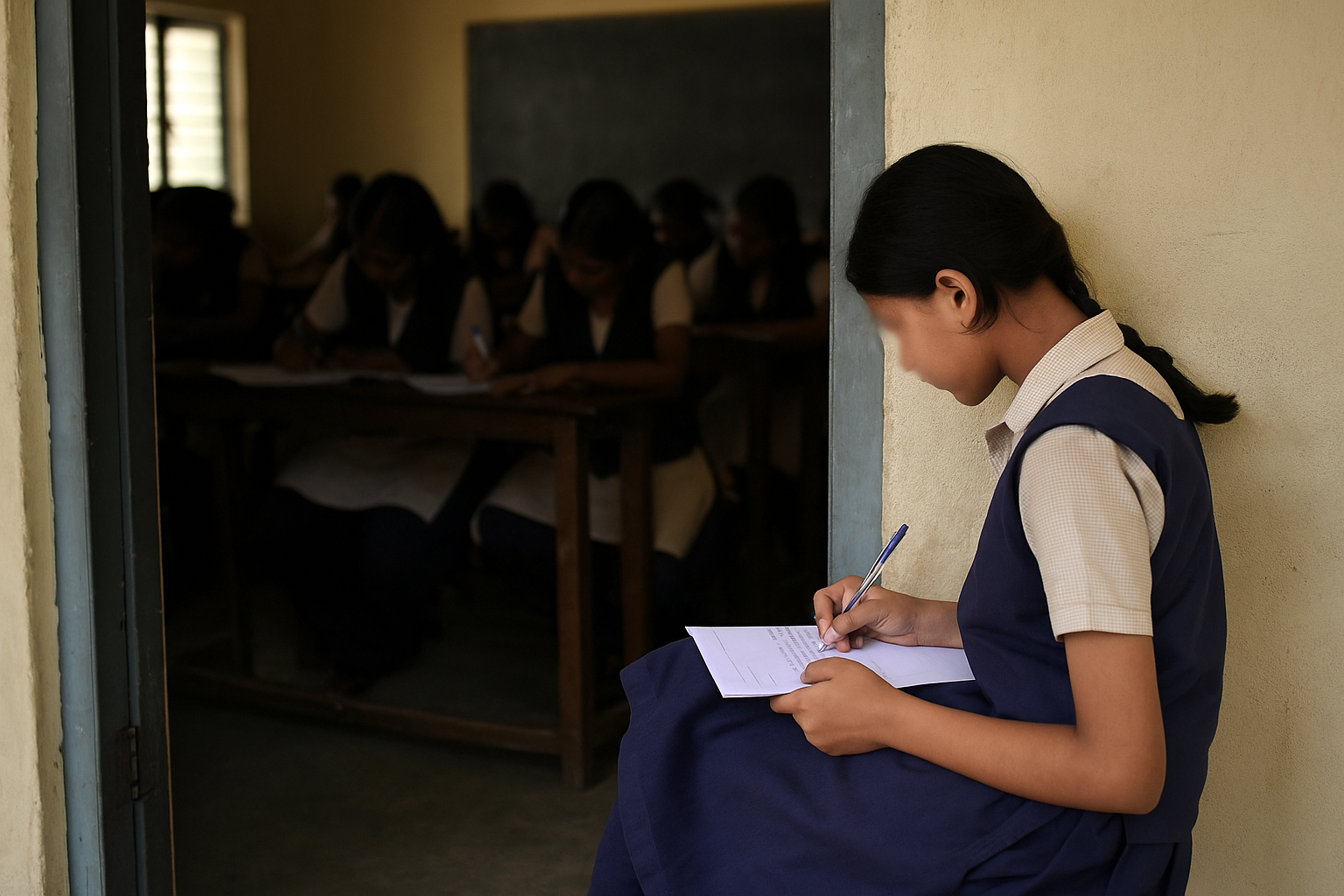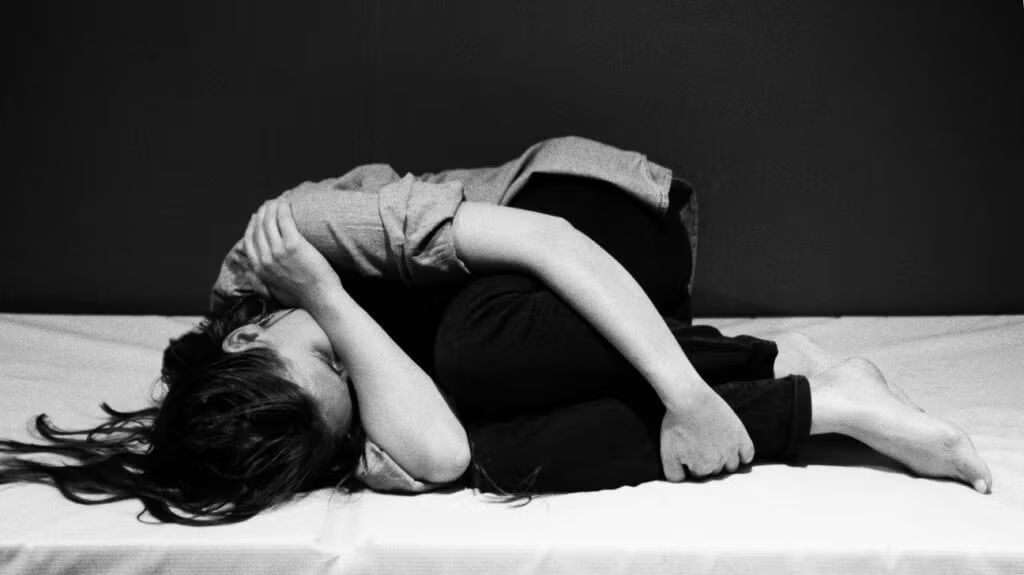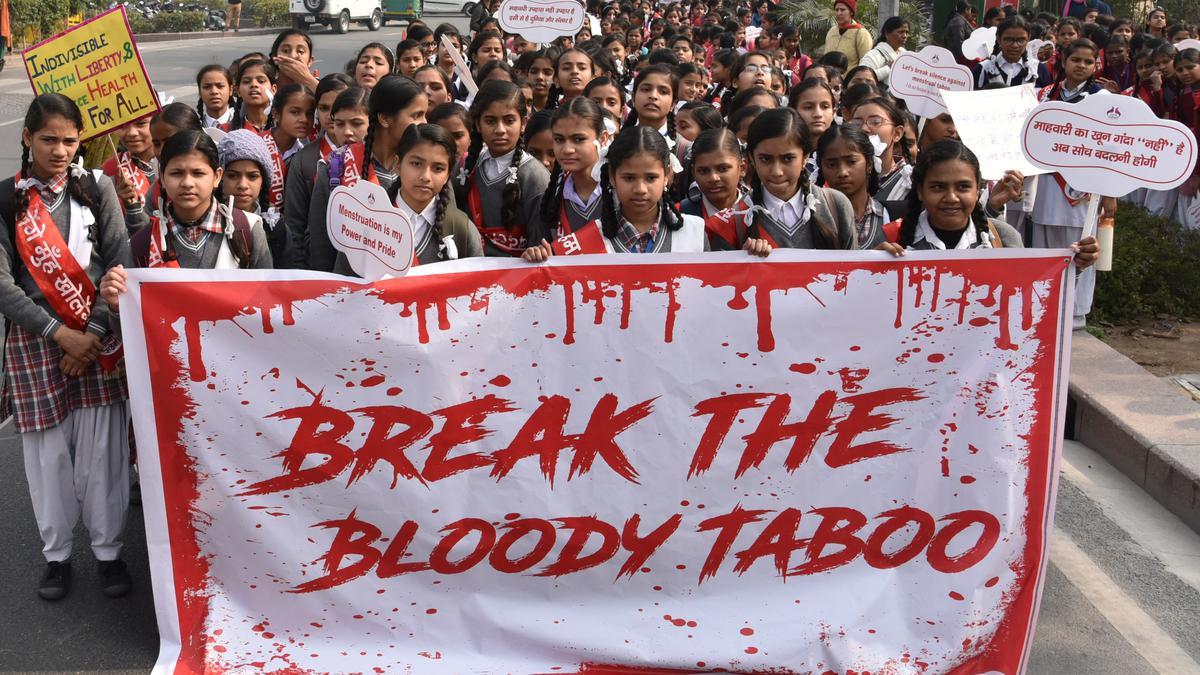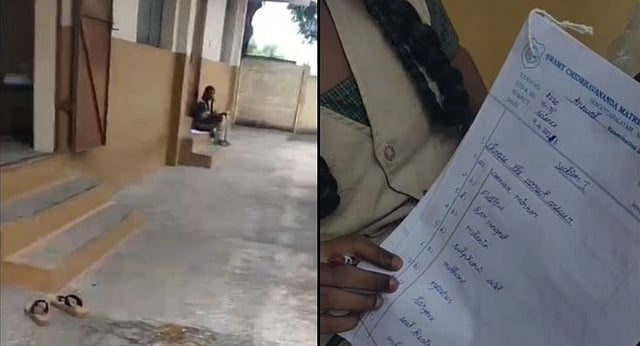A month ago, a deeply troubling incident from a private school near Kinathukadavu in Tamil Nadu’s Coimbatore district sparked a nationwide conversation—one we can no longer afford to avoid.
An eighth-grade girl, experiencing her first menstrual cycle, was reportedly made to sit on the classroom doorstep and write a three-hour exam. She was not allowed inside the classroom. She later returned home complaining of severe leg pain. Her parents, initially unaware of the cause, only discovered the truth after her mother gently probed, leading to the revelation that their daughter had been forced to sit on the cold, hard steps while bleeding, isolated from her peers.
While the school principal claimed this was done “on request” for privacy, he was later dismissed by the school management. But the dismissal of one individual doesn’t erase what this incident revealed: deep-seated, institutional stigma against menstruation in our schools, our culture, and our mindset.
Why This Is More Than Just a School-Level Issue

What happened in Coimbatore is not an isolated incident. It is a reflection of widespread menstrual illiteracy and shame that still grips many corners of Indian society, even in 2025. The girl’s first period should have been met with sensitivity, support, and normalization. Instead, it became an episode of physical distress and psychological alienation.
While India has seen campaigns like “Menstrual Hygiene Day,” “Padman,” and government schemes offering subsidized sanitary pads in schools, the real change must go beyond access it must address attitude.
Let’s Talk About the Numbers
-
71% of adolescent girls in India report not knowing what menstruation was before they had their first period (UNICEF, 2022).
-
Over 23 million girls drop out of school annually after reaching puberty, primarily due to menstrual discomfort, shame, and lack of safe sanitation (Dasra Foundation, 2021).
-
In rural and semi-urban areas, menstrual taboos often translate into exclusion from classrooms, religious spaces, or even kitchens.
The Pain Is Not Just Physical

What the Coimbatore case illustrates is that the psychological impact of such exclusion runs deep. Being publicly separated during menstruation sends a message to young girls that their bodies are impure, disruptive, or less than. It tells them their biology is a problem to be hidden.
This moment, etched into a girl’s memory at a young age, becomes part of a larger pattern of shame and silence around menstrual health—a silence that later manifests in women skipping work during their period, being denied access to temples, or avoiding necessary medical help due to stigma.
What Needs to Change

-
Curriculum reform: Menstrual education must be a part of middle school health education, not as a biology lesson, but as a social-emotional learning module for all genders.
-
Sensitization training for teachers and staff: Every adult in the school system—from principal to peon—must undergo workshops to understand period care, empathy, and student dignity.
-
Emergency menstrual support kits in schools: Accessible pads, pain relief, and rest areas should be standard, not exceptional.
-
Public shame must be criminalized: Just as caste or gender-based discrimination in schools is illegal, menstrual discrimination should also be actionable under child rights violations.
What We Can Learn From the Girl’s Courage
Despite the trauma, the fact that the young student eventually confided in her mother is powerful. It reminds us that even today, girls want to be heard; they just need someone to listen without judgment.
The dismissal of the principal, while a necessary accountability measure, must not become the end of the conversation. We must move toward systemic reforms in how schools respond to periods, not just in Tamil Nadu, but across India.
Menstruation is not taboo. It is not an inconvenience. It is not a reason to isolate, humiliate, or disadvantage anyone, especially not a child in the most formative years of her life.
The Coimbatore incident was a moment of national shame. But it can also become a moment of national reckoning—if we choose to learn from it.








